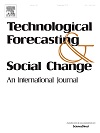Telemedicine for low resource settings: Exploring the generative mechanisms

Information Communication and Technology for Health (ICT4H) initiatives, such as telemedicine, can potentially bridge the gap between the health care services available in rural and urban areas. However most of such initiatives have not been able to sustain or obtain optimal results. Comprehending knowledge about what drives success in telemedicine initiatives would be highly valuable for practitioners, policymakers and academicians. In this study, through a qualitative analysis of doctor-patient interactions over a telemedicine initiative in India, we attempt to identify the mechanisms that can enable successful telemedicine interventions. Based on the perspective of critical realism, we explore the phenomenon through the lens of ‘generative mechanisms’. Specifically, we identify three different mechanisms that underlie successful telemedicine, namely, (1) Mechanism of rich connectivity, which refers to the expanding scope of information flow between the nodes to include multiple aspects- clinical, managerial and technological; and both online and offline communication; (2) Mechanism of tutoring, which involves learning and skill development of the peripheral doctor; and (3) Mechanism of moulding, which concerns the moulding of naïve patients to expert patients, both in technology use and self management of disease. In addition, the paper demonstrates the efficacy of critical realism as a philosophical perspective for providing substantive insights in the field of ICT4H initiatives.
Telemedicine for low resource settings: Exploring the generative mechanisms

Information Communication and Technology for Health (ICT4H) initiatives, such as telemedicine, can potentially bridge the gap between the health care services available in rural and urban areas. However most of such initiatives have not been able to sustain or obtain optimal results. Comprehending knowledge about what drives success in telemedicine initiatives would be highly valuable for practitioners, policymakers and academicians. In this study, through a qualitative analysis of doctor-patient interactions over a telemedicine initiative in India, we attempt to identify the mechanisms that can enable successful telemedicine interventions. Based on the perspective of critical realism, we explore the phenomenon through the lens of ‘generative mechanisms’. Specifically, we identify three different mechanisms that underlie successful telemedicine, namely, (1) Mechanism of rich connectivity, which refers to the expanding scope of information flow between the nodes to include multiple aspects- clinical, managerial and technological; and both online and offline communication; (2) Mechanism of tutoring, which involves learning and skill development of the peripheral doctor; and (3) Mechanism of moulding, which concerns the moulding of naïve patients to expert patients, both in technology use and self management of disease. In addition, the paper demonstrates the efficacy of critical realism as a philosophical perspective for providing substantive insights in the field of ICT4H initiatives.
